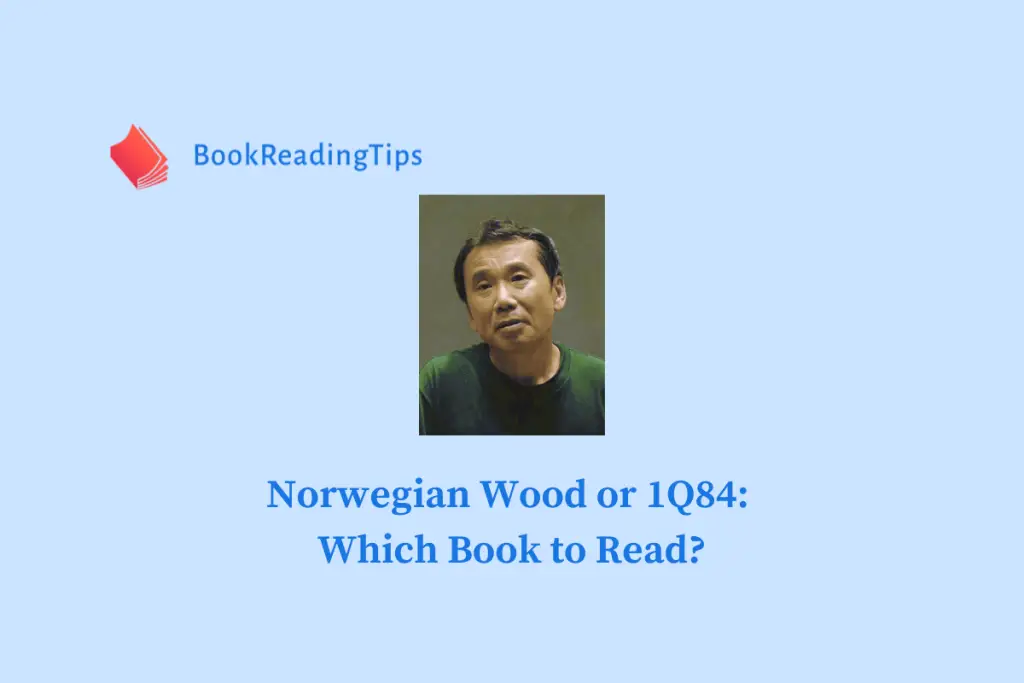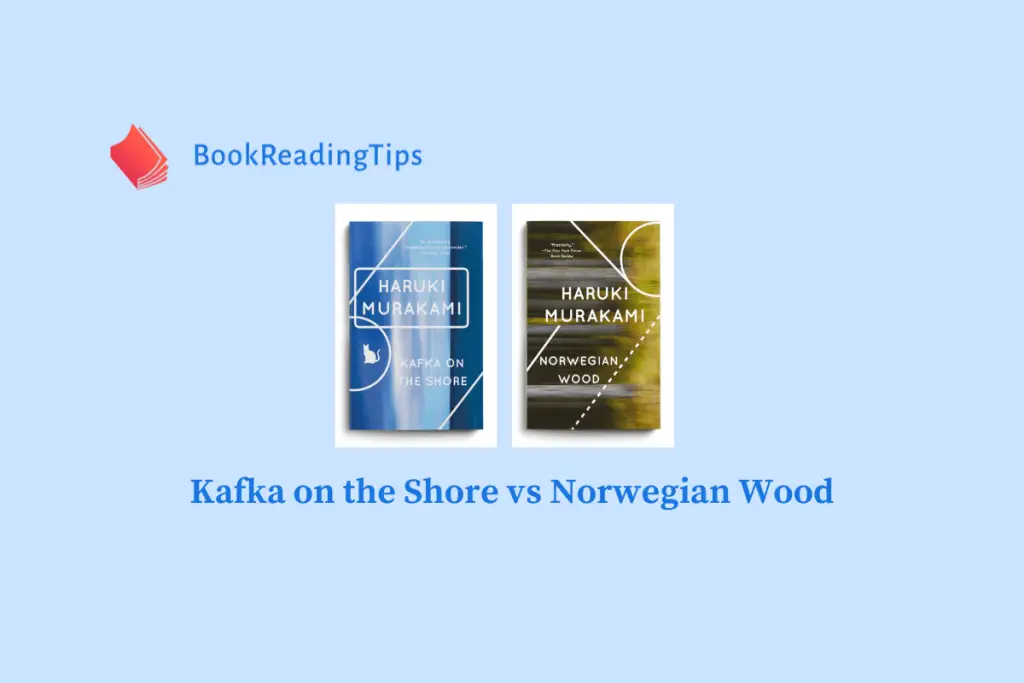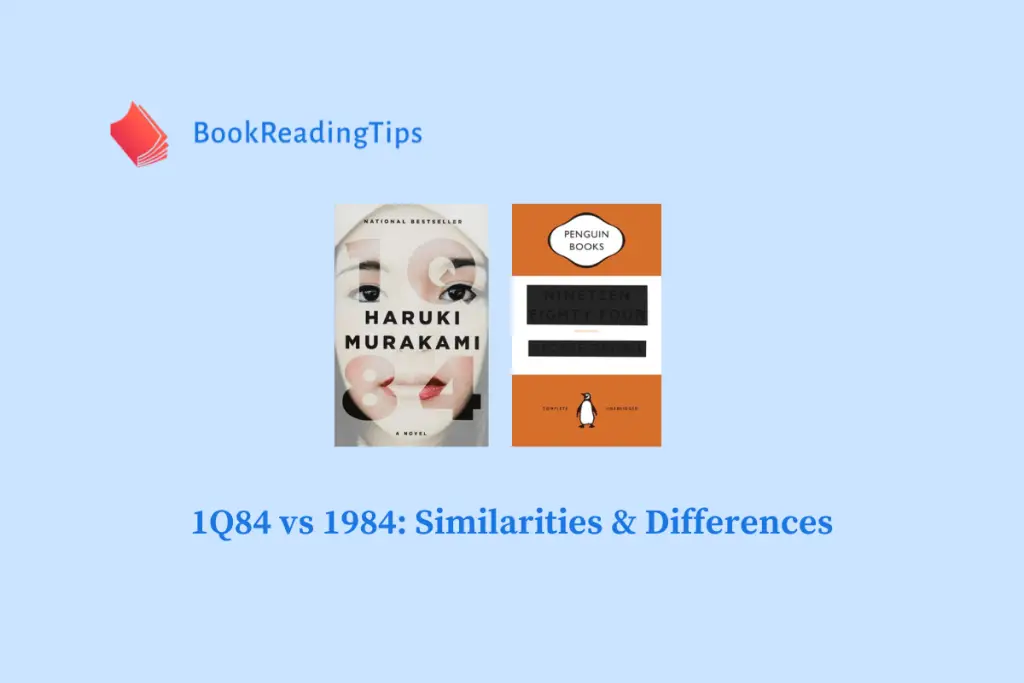Diving into the world of Haruki Murakami can be a mesmerizing journey. Two of his most captivating works, 1Q84 and The Wind-Up Bird Chronicle, each offer unique experiences that transport their readers into intricate, surreal universes. As you explore these literary masterpieces, it’s worth considering the themes, characters, and stories that set them apart, as well as the common threads that connect them.
1Q84 is a three-part novel that follows the intertwined lives of Aomame, a fitness instructor and assassin, and Tengo, a math teacher and aspiring writer. While these characters slowly gravitate toward one another, they find themselves in an alternate reality where they must confront not only their pasts but the strange forces shaping society. On the other hand, The Wind-Up Bird Chronicle centers on Toru Okada, an unemployed man searching for his missing wife. The journey he embarks on leads him into a well of interrelated stories, revealing family secrets and exposing hidden dimensions of reality.
As you read and compare the distinctive elements of 1Q84 and The Wind-Up Bird Chronicle, allow the enthralling tales and complex characters to guide you through the depths of Murakami’s brilliant imagination. Take note of the ways in which the worlds he creates reflect upon your own experiences and ponder the assumptions you might hold about the nature of reality.
Table of Contents
- Contextual Background
- Summary of 1Q84
- Summary of The Wind-Up Bird Chronicle
- Characters in 1Q84
- Characters in The Wind-Up Bird Chronicle
- Comparative Discussion
- Themes in 1Q84 and The Wind-Up Bird Chronicle
- Reader’s Response and Review
- Conclusion
Contextual Background
When you explore the literary works of Haruki Murakami, you’ll find yourself diving into the peculiar worlds of 1Q84 and The Wind-Up Bird Chronicle. Both novels, written by the renowned Japanese author, exemplify his signature blend of magical realism, surrealism, and existentialism.
Murakami’s career began in the 1970s, and he gained international recognition in the 1980s. As an author, he often plays with the boundaries of different genres, blending elements of science fiction, detective fiction, and fantasy, resulting in uniquely captivating narratives. His popularity led to numerous translations of his novels, making his works accessible to a diverse range of readers.
1Q84, published in 2009, is a captivating novel set in Tokyo, revolving around the intertwining lives of Aomame, a fitness instructor, and Tengo, an aspiring writer. The story is infused with mysterious occurrences, parallel worlds, and a variety of intriguing characters. It not only reflects the complexities of modern Japanese society but also captivates the reader by exploring themes such as religion, politics, and love.
On the other hand, The Wind-Up Bird Chronicle, published in 1994, follows the life of Toru Okada, a seemingly ordinary man seeking his missing wife, leading him to confront various otherworldly elements. The novel takes you on a journey through the subconscious and explores themes such as war, identity, and the power of human intuition. Throughout the novel, you’ll come across a rich tapestry of interwoven narratives, engaging you on a profound level.
Both novels showcase Murakami’s skill in crafting compelling stories that challenge the mundane realities of daily life. By reading these novels, you’ll find yourself reflecting on the mysteries of life and the human experience. In conclusion, 1Q84 and The Wind-Up Bird Chronicle are essential reads for anyone interested in uncovering the magic in Murakami’s unique storytelling style.
Summary of 1Q84
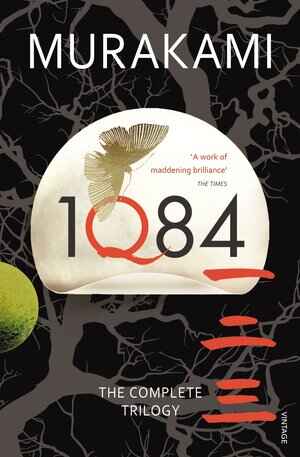
In 1Q84, you are introduced to two main characters, Aomame and Tengo. The story begins when Aomame finds herself in an alternate reality, which she names 1Q84, where the letter ‘Q’ stands for question. In this new world, you discover that there are two moons, strange creatures called Little People, and a sinister religious group led by a blind, powerful figure known as Leader.
As Aomame, a freelance assassin, you navigate the dangerous landscape while struggling to reconcile your memories of the real world with the one you currently inhabit. Your path eventually intersects with Tengo, a talented writer, and ghostwriter for a 17-year-old girl named Fuka-Eri. Together, you both venture deeper into the mysteries surrounding the enigmatic reality of 1Q84.
In this alternate reality, you not only struggle with the external forces and obstacles but also with your own internal dilemmas. You grapple with the themes of loneliness, love, and the intertwining of individual destinies. While navigating through this strange and intricate world, you gradually unravel the connections between its inhabitants and the blurred lines between fact and fiction.
Throughout the novel, you’ll find that 1Q84 is a place where anything can happen, yet it remains a reality that is eerily similar to your own. You must stay vigilant and resourceful to stay safe, keep your wits about you, and determine the true nature of the enigmatic world that enshrouds you and its inhabitants.
Summary of The Wind-Up Bird Chronicle
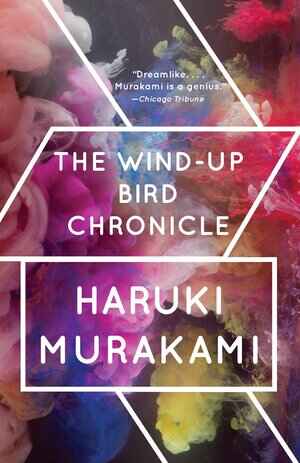
In The Wind-Up Bird Chronicle, you delve into the life of protagonist Toru Okada, an average man who experiences a series of unusual events. The story starts with the disappearance of his cat, which sets off a chain reaction of encounters with various intriguing characters. Among these characters is the mysterious Kumiko, Toru’s wife, who also goes missing during the course of the novel.
As you read on, you witness Toru’s exploration of alternative realities and his attempts to make sense of the strange happenings in his life. The wind-up bird becomes a central motif, symbolizing the force that seemingly controls fate and destiny. Throughout the novel, Toru interacts with characters who provide him with differing perspectives on life and reality itself.
It is important to note that The Wind-Up Bird Chronicle features multiple layers of reality, often blending elements of the supernatural with the mundane. This adds to the novel’s complexity, inviting you to question the nature of existence and the power of individual agency.
The Wind-Up Bird Chronicle invites you to navigate the intricacies of its complex narrative, delving into themes such as loss, identity, and the unknown. While you may not be offered definitive answers or tidy resolutions, the novel’s eloquent prose and rich symbolism will undoubtedly leave you with plenty to ponder.
Characters in 1Q84
In 1Q84, you will find a cast of intriguing characters at the heart of this captivating novel. The two main characters, Aomame and Tengo, exemplify the essence of the story as they navigate the parallel worlds of 1984 and 1Q84.
Aomame is a young woman with a mysterious past. As a fitness instructor and part-time assassin, her life takes a turn when she enters the alternate reality of 1Q84. She is strong-willed, independent, and faces the challenges of her new reality head-on. As you follow Aomame, you will begin to understand her true identity and the role she plays in this unique world.
Tengo is an aspiring writer and math teacher, leading a relatively ordinary life. Once he becomes involved with a mysterious literary project, his world starts to intertwine with Aomame’s. As a result, Tengo’s experiences in 1Q84 unravel his own identity and lead him to question the nature of the reality he once knew.
In both characters, the exploration of identity plays a significant role. The journey each character undertakes in discovering their purpose and true selves forms the backbone of the story. As a reader, you will witness the evolution of Aomame and Tengo as they not only adapt to the realities of 1Q84 but also uncover the deeper facets of their identities. Through their actions and decisions, you will gain insight into how these characters grapple with their place in the larger narrative.
In addition to Aomame and Tengo, you will encounter a colorful array of supporting characters, each of whom contributes to the intricate web of the novel. Some of these characters include:
- Fuka-Eri is a dyslexic teenage girl whose novel becomes a vital link between Aomame and Tengo.
- Komatsu is a cunning editor with hidden motives and schemes.
- The Little People, mysterious beings with a significant role in driving the events of 1Q84.
As you delve deeper into the world of 1Q84, the relationships between these characters and the two protagonists become increasingly complex. The way they influence Aomame and Tengo’s decisions and understanding of themselves and the world around them, serves to enrich the overarching narrative, making 1Q84 an unforgettable reading experience.
Characters in The Wind-Up Bird Chronicle
In The Wind-Up Bird Chronicle, you are introduced to several characters that contribute to the intricate storyline. The protagonist, Toru Okada, is an unemployed man searching for his missing wife, Kumiko. As you follow Toru’s journey, you’ll notice the complexity of each character and their connection to the story.
Kumiko Okada, Toru’s wife, plays a pivotal role as the driving force behind the protagonist’s quest. She mysteriously vanishes, leading Toru to embark on a surreal adventure. Throughout the novel, you’ll learn about her strained relationship with her family, specifically her brother, Noboru Wataya.
Ushikawa, a sinister character with a criminal past, becomes a significant figure in Toru’s life. Delving deep into his character, you’ll find covert connections to the Watanabes and the unraveling mysteries.
Despite the dark undertones, The Wind-Up Bird Chronicle also offers several colorful characters who aid Toru on his journey. For example, Malta Kano and her sister, Creta Kano, act as spiritual guides showing him the path to follow. Moreover, there is May Kasahara, a quirky teenager who forms an unusual bond with Toru.
As you explore the novel, pay attention to the deep emotions and motivations of each character, which contribute to the overall narrative. Through their journeys, the reader has the opportunity to explore themes such as identity, marriage, and personal growth.
Comparative Discussion
In both 1Q84 and The Wind-Up Bird Chronicle, you will notice that Haruki Murakami explores the theme of parallel realities and incorporates elements of magical realism. As a reader, it’s natural to be intrigued by the distinctive narrative style and engaging storylines present in both novels.
When discussing these two novels in a book review or a subreddit, pay close attention to the differences in character development. In 1Q84, the protagonists Aomame and Tengo are strongly connected and simultaneously undergo personal transformations, while in The Wind-Up Bird Chronicle, Toru Okada embarks on a more solitary journey of self-discovery. Sharing your thoughts on these aspects will add depth to your discussion and showcase your understanding of the narratives.
If your girlfriend is a fan of Murakami’s work, it may be interesting to compare the portrayal of female characters in both novels. For example, in 1Q84, Aomame is a strong, independent woman who plays a pivotal role in the story, whereas Kumiko in The Wind-Up Bird Chronicle is more enigmatic, and her perspective on her is primarily seen through Toru’s eyes. Engaging in conversations about the representation of women in Murakami’s fiction could lead to stimulating discussions and insights.
In terms of plot complexity, 1Q84 takes the reader deeper into the fantastical world with its intricate storyline, while The Wind-Up Bird Chronicle provides a more grounded experience. Here are a few points to consider while discussing the intricacies of each novel:
- 1Q84:
- Multiple parallel storylines
- Set in an alternate version of 1984
- Incorporates elements of science fiction
- The Wind-Up Bird Chronicle:
- Focuses more on exploring the human psyche
- Mystical elements connected with history and memory
- A more introspective journey
When sharing your opinions in a literary discussion or a subreddit, remember to be confident and knowledgeable in your viewpoints, while maintaining a neutral and clear tone of voice. Addressing the topics mentioned will help your audience develop a well-rounded understanding of the two novels, encouraging deeper conversations about the themes, characters, and plotlines that make Murakami’s work so captivating.
Themes in 1Q84 and The Wind-Up Bird Chronicle
In 1Q84, you will find that the theme of abuse is essential to the story. This novel presents various forms of abuse, such as emotional and physical mistreatment. These forms of abuse shape the characters and influence their actions and decisions throughout the story. It is through the exploration of these abusive relationships that you can gain a deeper understanding of both the plot and characters.
On the other hand, The Wind-Up Bird Chronicle also addresses the issue of abuse, albeit in a somewhat different manner. In this novel, the theme of abuse is intertwined with the character’s emotional and psychological struggles. The protagonist, Toru Okada, navigates through a surreal world where he encounters dark, mysterious forces that serve as metaphors for the abuse and pain he experiences in his life. This incorporation of abuse as a thematic element adds depth and complexity to the novel and its characters.
Both novels also share the theme of exploring the boundaries of reality and illusion. In 1Q84, the characters Aomame and Tengo find themselves in an alternate reality, where they must confront their inner demons and face challenging moral dilemmas. Similarly, in The Wind-Up Bird Chronicle, Toru Okada’s journey into unknown realms forces him to question everything he knows about his life and relationships. The use of alternate realities in these works serves to highlight the characters’ internal struggles and provides a unique lens through which to examine their respective experiences with abuse.
Moreover, the theme of love and perseverance is evident in both novels. In 1Q84, Aomame and Tengo’s love for one another serves as a driving force, helping them to navigate the harrowing circumstances they face. In The Wind-Up Bird Chronicle, Toru Okada’s love for his wife Kumiko motivates him to overcome the various challenges he encounters in his surreal journey. The importance of love and perseverance in the face of adversity is emphasized in both novels, shedding light on the complexity and resilience of the human spirit.
In conclusion, themes such as abuse, the exploration of boundaries between reality and illusion, and the significance of love and perseverance are central to both 1Q84 and The Wind-Up Bird Chronicle. The exploration of these themes adds depth to the characters and contributes to the novel’s emotional impact. As you delve into these two literary masterpieces, you will find yourself immersed in their rich narratives and thought-provoking themes.
Reader’s Response and Review
As a reader exploring Haruki Murakami’s works, you may have come across his novels 1Q84 and The Wind-Up Bird Chronicle. Both novels have received a significant amount of attention from readers across the globe. Goodreads, a popular online book review platform, has facilitated discussions and reviews amongst its members on these two novels.
When comparing 1Q84 with The Wind-Up Bird Chronicle on Goodreads, you’ll find that both have received praise for their intricate plots and unique storytelling. However, some members express that 1Q84 can be lengthy and slow-paced, whereas The Wind-Up Bird Chronicle has a faster and more engaging pace.
On Reddit, you can explore dedicated subreddits for Murakami fans, where various discussions occur about these novels. Users often share their personal experiences and perspectives, providing valuable insights about the themes and narratives found in Murakami’s works. While some prefer the expansive world-building in 1Q84, others gravitate toward the distinct atmosphere created in The Wind-Up Bird Chronicle.
Overall, the reader’s response and review of these two novels reveal that they cater to different preferences. Both 1Q84 and The Wind-Up Bird Chronicle offer an immersive reading experience, but their differing pacing, length, and structure attract varying opinions among readers. As you decide which novel to explore further, consider the reviews and discussions found on Goodreads and dedicated Murakami subreddits, and take into account the reading experience that fits your taste.
Conclusion
In comparing 1Q84 and The Wind-Up Bird Chronicle, you can appreciate the unique narrative styles and themes present in both novels. These two stories, though different in plot, share an underlying theme of the search for self-identity and purpose.
As you delve into the worlds created by Haruki Murakami, you’ll find yourself enthralled by the intricate character development and fantastical elements. In 1Q84, the parallel universe serves as an essential part of the story, creating an otherworldly atmosphere riddled with suspense. This novel deals with complex ideas, such as parallel universes and totalitarian control, which will challenge you to think beyond the boundaries of reality.
On the other hand, The Wind-Up Bird Chronicle invites you into a deeply introspective journey. With an emphasis on lucid dreams and inner exploration, this novel encourages you to contemplate the mysteries of life and seek an understanding of your own self. The winding, nonlinear narrative may require patience, but the rewards are well worth the effort.
In conclusion, both of these novels provide captivating and thought-provoking experiences for their readers. While they differ in terms of narrative approach and specific themes, they share a common thread of self-discovery and personal growth. Whichever book you choose to read first, you can be confident you’ll be embarking on a remarkable literary experience shaped by Murakami’s distinct voice and imagination.

